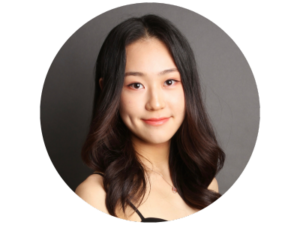Welcome to the 2024 Synergy Summer Studentship Program
We have an exciting line-up of professional development workshops, activities, and socials this year! You’ll find everything you need to know about this year’s events, as well as the participating cohort below.
Quick Links
Synergy Sessions
All participating students will attend workshops, presentations and networking events as part of the program.
Have Questions?
There is a lot of learning, connecting, research and preparation in the months ahead. Please don’t hesitate to reach out if you have any questions at all about the program. Our program manager Jocelyn McKay will be happy to help!
Jocelyn McKay
Research Manager,
School of Biomedical Engineering
jocelyn.mckay@ubc.ca
Program Expectations
During the program, you will work on a defined research project with a UBC supervisor, gaining valuable lab experience. You will also participate in professional development programming and several student socials. The summer concludes with Synergy Research Day, where you will present your research to the SBME community.
Please carefully review the schedule below. Make sure you lock these dates and times into your calendar. Interacting with speakers, networking with other students, and asking questions directly is the best way to get the most out of these sessions.
Mandatory Events Schedule
May 2: Welcome Orientation & Ice Cream Social
This is your chance to kick off the new program right. Meet your peers, the program leaders, and learn more about all that’s in store over the course of the 2024 Synergy schedule. This presentation is followed by and Ice Cream Social on the BRC rooftop patio!
Presentations From Past Synergy Students
Aditya Swaro: Adi is a third-year student studying cellular & molecular neuroscience. He was awarded the SBME Synergy Studentship after his second-year, working in Dr. Mark Cembrowski’s lab at the Life Sciences Institute. During his Synergy studentship, he used spatial transcriptomics technology to analyze cellular dysregulation in the mouse brain following Traumatic Brain Injury (TBI). Using this analysis, he built an interactive online web portal, ‘TBISeq’, which allows any researcher to discover how their favorite gene, brain region, or cell-type is affected by TBI. Adi has presented his Synergy Project at several conferences, including those at the NIH Campus, Harvard College, and at the Synergy Research Day, where his oral talk won second place! His research at the Cembrowski Lab will continue during his upcoming co-op term. He’s happy to help answer any questions that the upcoming Synergy cohort has!
Yasmine Lau: Yasmine was part of the Synergy 2022 cohort, during which she conducted renal disease research at McNagny Lab at the Biomedical Research Centre. Her Synergy project was in collaboration with then MD/PhD candidate R. Singla (Rohling Lab), investigating quantitative ultrasound (QUS) as a novel method to detect and identify various types and stages of renal diseases. She also presented this at Molecules and Mechanisms Mediating Kidney Health (M3K) conference in the following year. Yasmine is a research assistant at Eaves Lab at BC Cancer, working on hematopoietic stem cell differentiation focused on a common B and T cell precursor.
Sabine Lim: Sabine is a 4th year Biomedical Engineering Student at the University of Victoria. She was born and raised in Vancouver. She is passionate about medical technology and biomechanics. In her free time she enjoys reading and getting outside. She did her first co-op at the Victoria Hand project, a charity organization based out of UVic that designs, builds and deploys 3D printed prosthetic arms to people in need around the world. This summer she will be pursuing an international research position at NANOTEC in Thailand. She’s here today to talk about her experience with Synergy and her work in Peter Cripton’s lab at ICORD last summer.
WHEN: 11am – 1pm
WHERE: Begins in LSC 1003; followed by an ice cream social on the BRC Rooftop Patio (as weather permits)
June 6: Lab Exploration Activity Part I & Student Social
Learn about the labs that your peers are working in, and sign up for guided tours that will happen throughout the summer. Immediately following the Lab Exploration activity, students are invited to participate in an Escape Room Social. Team up with your peers to solve mysteries using our Escape Room board games.
WHEN: 11am – 1pm
WHERE: BRC 351
FACILITATOR: Jocelyn McKay
July 4: Presentation Skills Workshop
Delivered as a seminar focusing on oral, graphical and written forms of communication, this session will aim to give you some familiarity with the theory and practical techniques of effective communication.
WHEN: 11am – 12pm
WHERE: BRC 351
FACILITATOR: Elizabeth Castle
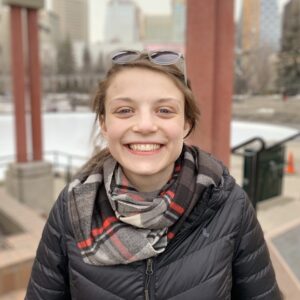
Beth completed her B.Sc. and M.Sc. degrees in Microbiology and Immunology, with a focus in Virology, at Dalhousie University in Halifax, NS. She then travelled west to start her Ph.D. in the School of Biomedical Engineering at the University of British Columbia, where her research focuses on discerning the impact of microenvironmental factors on the generation of blood cells from stem cells. Outside of her research, she is passionate about using effective communication to improve community understanding and health outcomes, through mental health and science communication initiatives. Some highlights of her science communication work include starting and hosting the podcast ‘The Unscientific Method’, designing a children’s interactive science showcase ‘The Library of Science’, and presenting her own work in association with Soapbox Science. She currently continues to host the podcast and is working to design a science demonstration for Mend the Gap, a project focused on improving spinal cord injury outcomes.
July 25: Career Exploration Panel & Lab Exploration Activity Part II
Meet and network with professionals in academia, healthcare, and industry, to learn about their career paths, and hear their advice on career development. Afterwards, head over to the BRC to participate in the Lab Exploration Activity Part II over lunch.
WHEN: 11am – 1pm
WHERE: LSC 1003; then BRC 351
SPEAKERS: Dr. Karen Lam (Solve FSHD); Conor Doyle (Stryker, Canada West); Maggie Chopra (MD/PhD, UBC); Dr. Kelly McNagny (Professor, UBC)
FACILITATOR: Jocelyn McKay
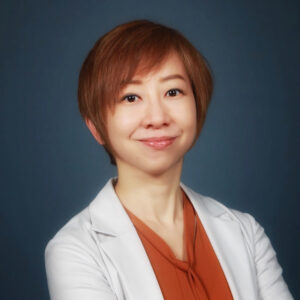
Dr. Karen Lam
Vice President, Business Development & Partnerships
Solve FSHD
Karen is a biomedical scientist and entrepreneur with 20 years of experience in scientific research, biotechnology commercialization, and business development. She has a Ph.D. in Medical Genetics and post-doctoral training in Biochemistry from the University of British Columbia, and a broad scientific background spanning molecular biology, personalized medicine, genomics, molecular diagnostics and drug discovery. She has published over 30 research articles, book chapters, and patents, and currently holds an Adjunct Professorship in the UBC Department of Pathology and Laboratory Medicine. Karen’s business leadership in the health and biotechnology arenas include notable roles such as Chief Business Officer of a non-profit biomarker development organization, Leader of Innovation and Business Development at Vancouver Coastal Health Authority, and co-founder and CEO of a pioneering health technology start-up for veterinary medicine. With a proven track record across non-profit, industry, healthcare, and academic spheres, Karen has leveraged her scientific and business expertise to foster cross-sectoral partnerships, tackle problems, and deliver tangible impact in health innovation.

Conor Doyle
Field Service Area Technical Lead
Stryker
I started my career in Ireland with Stryker 6 years ago. Since then I moved to Vancouver and built my way up from intern to now team lead of Stryker medical for Canada west. My primary qualification is a bachelor degree in Biomedical engineering and I also hold a masters in Project Management both qualifications were obtained in the University of Limerick. In my current role as team lead Canada West I manage a team of 12 individuals across western Canada, they help service and maintain a wide array of medical devices used for multiple reasons such as emergency care, long-term care and hospital care. I have recently been awarded the John Brown award from Stryker, which is a prestigious award for highest grossing Rep in North America.
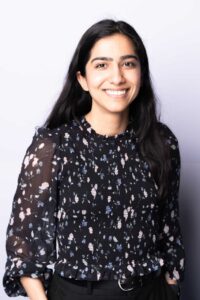
Maggie Chopra
MD/PhD
UBC
Maggie grew up in Calgary, Alberta, where her participation in annual science fair competitions throughout middle school sparked her passion for research. In 2017, she earned a BHSc in Biomedical Sciences from McMaster University. During her time at McMaster, she delved into the mechanisms that sustain early allergic memory against food allergens in Dr. Manel Jordana’s lab. Each summer, Maggie returned to Calgary to work under Dr. Antoine Dufour at the University of Calgary, utilizing discovery-based mass spectrometry tools to identify protein signatures in various healthy and diseased tissues, including those affected by multiple sclerosis and ulcerative colitis.
In 2021, Maggie relocated to Vancouver to pursue an MD/PhD at UBC. Her doctoral research in Dr. Kelly McNagny’s lab focuses on the long-term impacts of early-life perturbations on tissue-resident immunity and the predisposition to chronic immune diseases, particularly atopic dermatitis and allergic asthma. Outside her academic pursuits, Maggie enjoys discovering new cafes, crocheting, playing ultimate frisbee, and spending time outdoors with her friends and family.
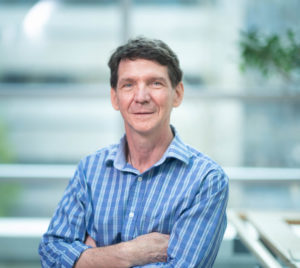
Kelly McNagny
Professor, Department of Medical Genetics
SBME, UBC
Dr. Kelly McNagny obtained a BSc in Biology and Biotechnology at Worcester Polytechnic Institute (WPI) in Massachusetts and subsequently a PhD in Cellular Immunology at the U of Alabama at Birmingham (UAB). At UAB he worked with Dr. Max D Cooper, a founding father of B cell immunology, and his research focused on cell surface proteins that regulate B cell maturation and homing. He then moved to the European Molecular Biology Laboratory (EMBL) in Heidelberg, Germany where he performed postdoctoral studies with Dr. Thomas Graf and his work focused on transcriptional control of stem cell fate and the commitment to macrophage, eosinophil and thrombocyte development. He also identified a number of novel hematopoietic stem cell surface proteins (the CD34 family) and this then became the research focus of his own laboratory at The Biomedical Research Centre, at the University of British Columbia in Vancouver. He is currently a full professor in the departments of Biomedical Engineering and Medical Genetics where his work focuses on stem cell behavior, innate immune responses, inflammatory disease, cancer biology and immunotherapeutics. His research relies heavily on the use of transgenic mice and animal models of human inflammatory disease as well as high-throughput “omics” technologies to reveal the immune components that determine the outcome of human disease. Nationally, he has filled leadership roles in the Stem Cell Network Centre of Excellence, the Centre for Drug Research and Development and the AllerGen Network Centre of Excellence. He is currently Co-leader of the Immunotherapeutics Cluster at UBC and is UBCs Delegate to CIHR.
August 13: Synergy Research Day
Synergy Research Day is an opportunity for Synergy students to showcase their summer research projects, hear an inspirational keynote talk, and celebrate the end of the Synergy Summer Studentship Program!
WHEN: 9am – tbd
WHERE: Life Sciences West Atrium
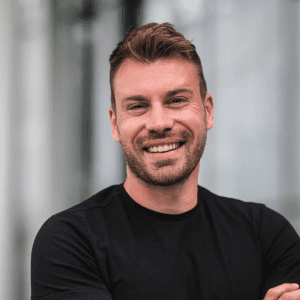
Keynote: Dr. Mark Cembrowski
Molecules, Cells, and Memory in the Brain
Memory is central to everyday life, and understanding the neurobiology of memory holds immense importance for both fundamental science and clinical application. Here, focusing on neurons in the hippocampus, I’ll present research on how memories are formed, stored, and retrieved in the brain. This work will span molecular, cellular, and circuit neuroscience, and through the use of state-of-the-art neuroscience tools, show how specific types of neurons can mediate distinct aspects of memory and behaviour.
Meet Your Synergy 2024 Cohort

| Alyssa Aguason |

| Amit Sharma |

| Bjorn Holst |

| Brian Deng |

| Catherine Wang |

| Christian Thorson |

| Edward Melnyk |

| Elena Greenall |

| Gopika Makhija |
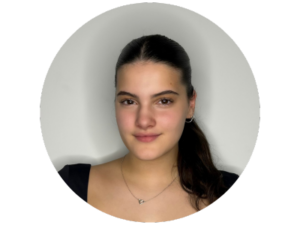
| Isabella Coccimiglio |

| Jeremi Kolakowski |
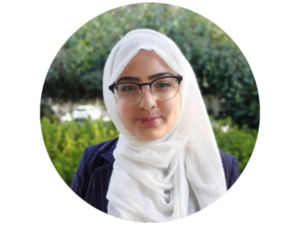
| Kisa Naqvi |
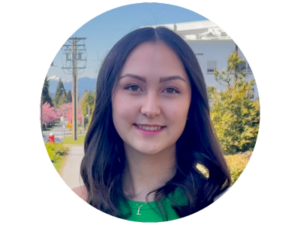
| Laura Ing |
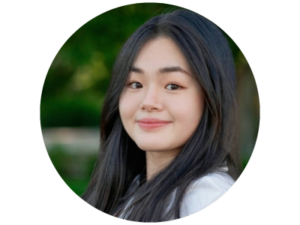
| Ming Zhang |
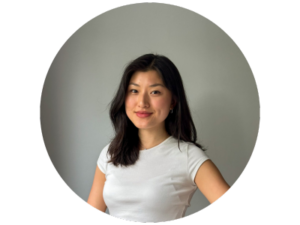
| Myra Wei |
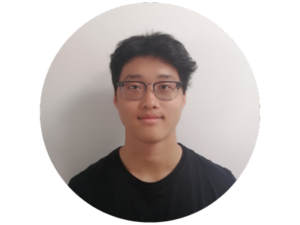
| Owen Liu |
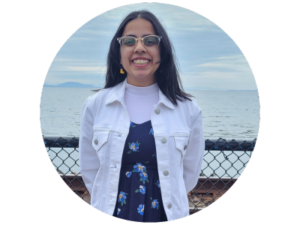
| Simrit Boparai |
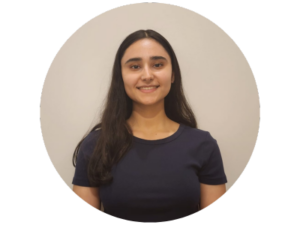
| Sogand Golshahian |
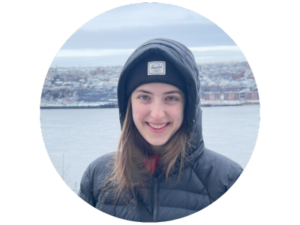
| Sophia Katramadakis |
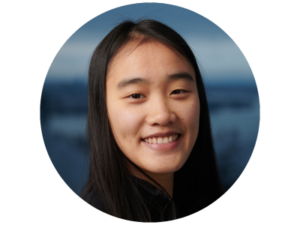
| Stephanie Chow |
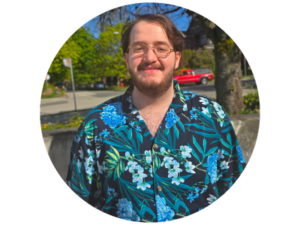
| Tarek Alkabbani |
| Yuqing(Phoenix) Jin |
